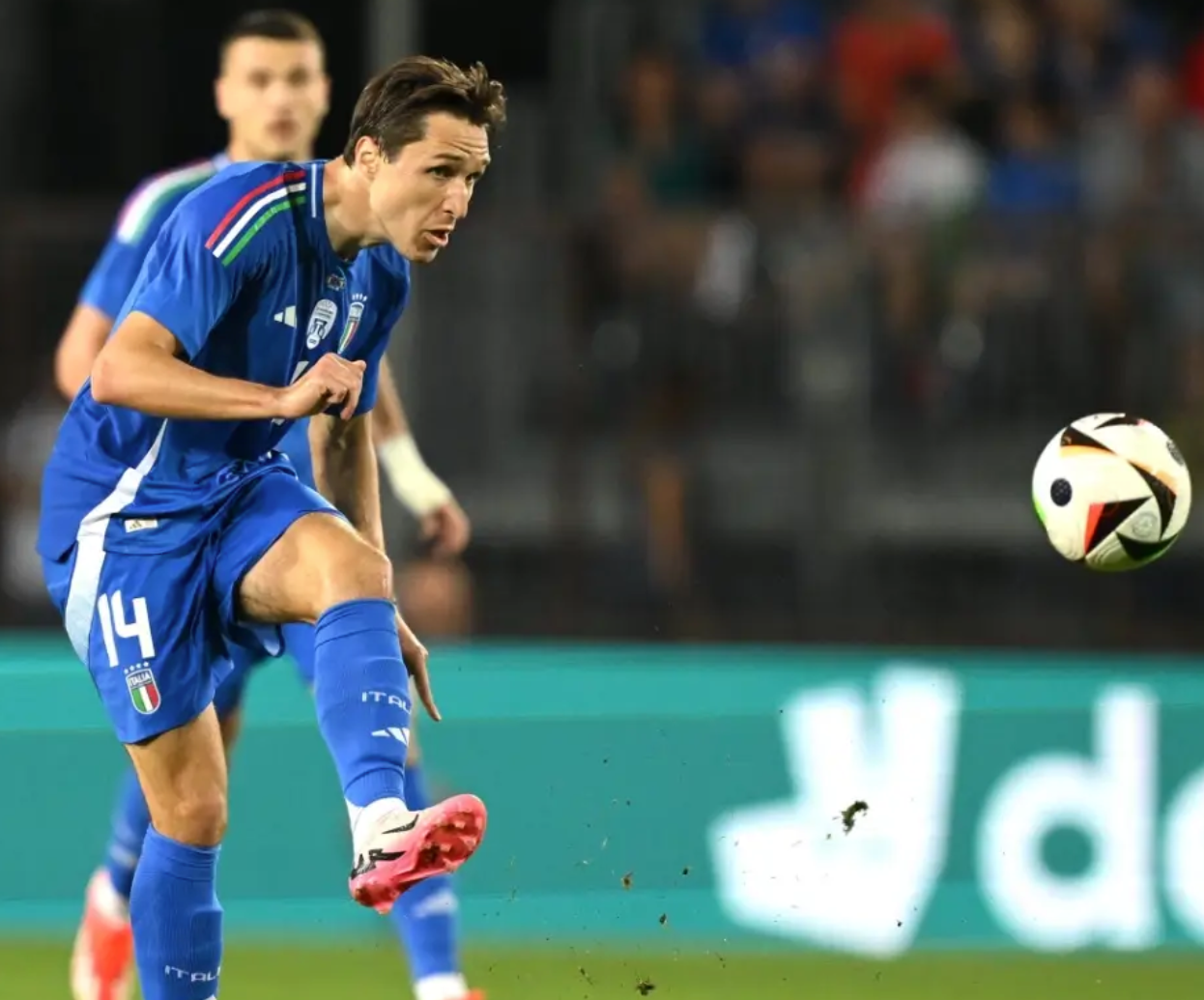
In the crucial phase of preparation for Euro 2024, the Italian national team under the leadership of Luciano Spalletti played a series of warm-up matches aimed at sharpening the lineup and improving the team's competitive state. Among them, the match against Bosnia and Herzegovina was particularly notable, not only because of the improvement of the soccer level of Bosnia and Herzegovina in recent years, but also because it was the last warm-up match of the Italian national team before the official UEFA Euro.
Spalletti used a 3-4-2-1 formation for this match, a product of his attempt to combine Italy's traditional defensive strengths with modern soccer's attacking philosophy. Donnarumma's steady play as the starting goalkeeper was the cornerstone of Italy's defensive system. The three-fullback system of Carafiore, Buon Giorno and Darmian is designed to provide a sturdy defense while also being involved in the attack when necessary. In midfield, the combination of Cambiasso, Faggioli, Jorginho and Bellanova has both defensive rigidity and the ability to organize the attack. Chiesa Jr. and Fratessi act as a double front man who are tasked with creating chances and supporting center forward Scaramacca.
During the game.
Italian team
The team showed some threat in the attacking end, especially in controlling the midfield and breaking through on the sides. However, Scaramaka, the single arrow of the team, failed to live up to expectations in his performance in the game. Although he has good physical condition and technical ability, he was too impatient in the handling of the goal, and missed many good opportunities to break through the goal. This not only affected the team's offensive efficiency, but also made fans and the media question his performance.
Spalletti said in his post-match interview that he was satisfied with his team's overall performance, but also acknowledged Scamacca's shortcomings on the attacking end. He pointed out that Scaramacca is still young and needs more game experience to improve his shooting skills and game intelligence. At the same time, Spalletti also emphasized that he will strengthen the guidance to Scamacca in the next training, hoping that he will be able to play a bigger role in the European Cup.
For Italy, the group stage of the Europa League will be a huge test. Not only do they have to face the strong Spain and Croatia, but they also have to fight with Albania to qualify for the group. This means that every game is crucial and Italy will need to be at their best in both offense and defense.
On the offensive side of the ball, Spalletti needs to find more effective ways to attack, using the creativity of the midfield and the speed of the wings to create more chances for Scaramacca to shoot. At the same time, he also needs to consider whether he wants to adjust the configuration of the attacking line or give more chances to other attacking players in order to increase the variety and unpredictability of the offense.
Defensively, Italy will need to maintain their traditional strengths of solid defense and efficient counterattacking. This means that the three defenders and midfielders will need to work closely together to form an impenetrable defense. Meanwhile, goalkeeper Donnarumma's performance will be crucial, as he will need to make saves at crucial moments to keep the team's clean sheet.
In addition, the Italian team will need to be mentally prepared to face the pressure and challenges of the group stage. On the stage of the Europa League, any small mistake can lead to the loss of the tournament, so the team's cohesion and mentality adjustment will be the key factors for success.
Overall, Italy's performance at the Euros will depend on how they find a balance between the attacking and defensive ends of the game, and how they adjust their tactics and staffing to suit different opponents. Spalletti and his players will need to prove their mettle in the upcoming matches to break out of the Group of Death and continue their Euro journey.






























